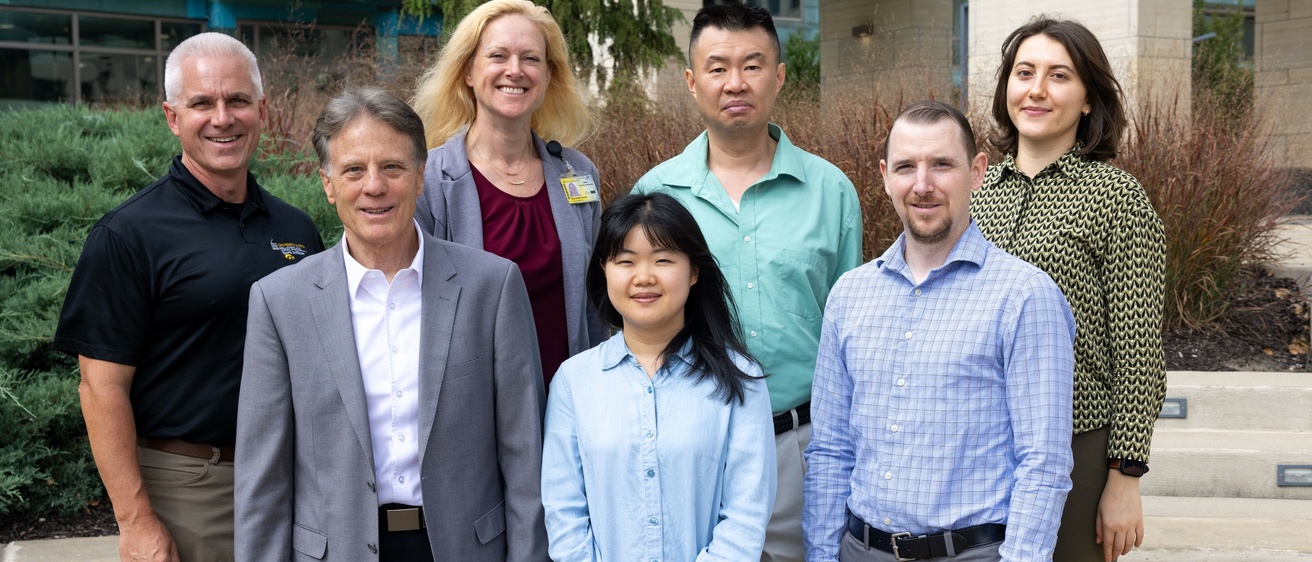Main navigation
McMillan Lecture
Richard Shields, PT, PhD, FAPTA, delivered a powerful and provocative message as part of the 48th Mary McMillan Lecture “Turning Over the Hourglass” at the June 2017 American Physical Therapy Association’s NEXT Conference in Boston. Receiving the Mary McMillan Lecture is the most distinguished honor a physical therapist can receive and recognizes demonstrated exemplary skills in the areas of administration, education, patient care, management and research. Faculty, staff, students, physical therapists and leaders from across the country attended the NEXT conference to hear the talk. He challenged all physical therapists to “turn over the hourglass” and extend life to those who need our services. Specifically, he addressed two frontiers that will impact the future of physical therapy: understanding the principles of “precision physical therapy” and appreciating “the human experience of our patients and students”. Through high quality illustrations, videos, and classic clinical examples, Dr. Shields carefully communicated concepts about optimized movement that captivated the audience and challenged them to think about their future as physical therapists. Please click to view the video of his lecture.
Current Research Projects
Neuromusculoskeletal Plasticity following Spinal Cord Injury
The effects of disuse from spinal cord injury are studied with respect to skeletal changes (bone density), muscular adaptations, fatigue, contractile properties (fiber type), and reflex excitability (H-reflex, withdrawal reflex). The extent to which these adaptations are influenced by training under acute and chronic conditions are examined during longitudinal and cross-sectional studies.
Electrical and Mechanical Stress on Post-SCI Muscle and Bone
The objective of this project is to determine whether mechanical loads induced via electrical stimulation, mechanical oscillation, or the combination thereof can trigger genetic changes and preservation of bone mineral density after SCI. The study examines both the short term (1 bout) and long term (6 months) effects of these types of training.
Novel Intervention to Influence Muscle Plasticity in Veterans with SCI
The long-term goal of this project is to establish the optimal dose of muscle and bone stress during functional exercise in order to improve the health of veterans with complete paralysis. Outcomes include muscle physiologic performance, adaptations of genes that regulate atrophy and muscle fiber type, systemic markers of inflammation and insulin regulation.
Mechanical Stress and Skeletal Plasticity after Spinal Cord Injury in Humans
The objective of this project is to determine whether mechanically induced stress, via compression of vibration, in the absence of electrically-evoked muscle contractions, can maintain bone integrity longitudinally after SCI. The long term aim is to develop therapies to enhance bone integrity in subacute and chronic SCI, including individuals who cannot electrically activate their musculature.
Cortical Excitable and Motor Learning
The objective is to test if novel movement tasks, with unexpected perturbations, enhance motor learning in individuals with compromised human performance (aging, athletes due to injury, CNS disorders, fatigue).
Heat Stress and Protective Extracellular Chaperones
The goal of this project is to examine if passive heat stress, with and without various doses of exercise, may enhance protective proteins associated with cell health. We are examining if these interventions impact insulin sensitivity in humans who are sedentary.
Current Funding
- NIH R01 NR-010285
- NIH R01 HD-062507
- UL1 TR002537
- APTA Academic of Education
- NIH R01 NS094387

Richard K. Shields, PT, PhD
Director
Contact Information
Locations:
0716B University of Iowa Health Care
Medical Education Building
